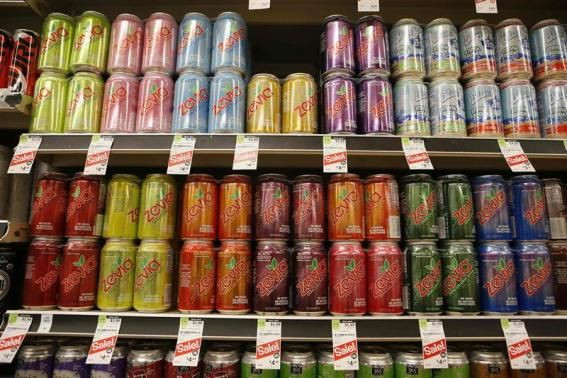Study suggests artificially sweetened drinks may be tied to dementia and stroke

A new study suggests that artificially sweetened beverages, such as diet sodas, are linked to a higher risk of stroke and dementia. Meanwhile, no connection was traced between these health risks and other sugary beverages like fruit juice, fruit drinks and sweetened sodas.
The findings published in the American Heart Association’s journal sheds light only on an association as the researchers were not able to determine the cause-and-effect relationship between sweetened drinks and a heightened risk for stroke and dementia. Experts advise that the study should be interpreted warily.
Matthew Pase, the lead author of the study and a senior research fellow in the department of neurology at Boston University School of Medicine, said they have little data regarding the health effects of diet drinks. He added that it may be problematic because diet drinks are common among consumers.
Pase admitted that more researches are needed to determine the health effects of consuming diet drinks to help consumers arrived at informed decisions concerning their health. The latest study included data on 2,888 adults older than 45 and 1,484 adults older than 60. The respondents are from Framingham, Massachusetts. The data was released though the Framingham Heart Study, a project of the National Heart, Lung, and Blood Institute and Boston University.
Researchers have particularly analysed the amount of sugary beverages and artificially sweetened soft drinks every respondent in the two different age groups have consumed between 1991 and 2001. They used the data to compare the number of people who suffered stroke or dementia over the next decade.
Those who consumed artificially sweetened soda were more likely to have an ischemic stroke due to blocked blood vessels. Researchers have also learned that those who drank one a day were nearly three times as likely to be diagnosed with dementia.
Pase disclosed that respondents that consumed six artificially sweetened drinks per week were 2.6 times as likely to experience an ischemic stroke. He said this means it is not surprising to see that intake of diet soda was linked to stroke and dementia.
The researcher added that he was surprised to learn that consumption of sugary drinks was not associated with either the risks of stroke or dementia because they were known to be unhealthy. Meanwhile, CNN noted that Lauren Kane, a spokesperson for the American Beverage Association, said low-calorie sweeteners added in beverages were proven safe for it was reviewed by the FDA, World Health Organization and European Food Safety Authority among others.
The National/YouTube
Read More: Australian health experts warn about antibiotic overuse
British doctors to test modified pig organs as treatment for oesophageal atresia





















